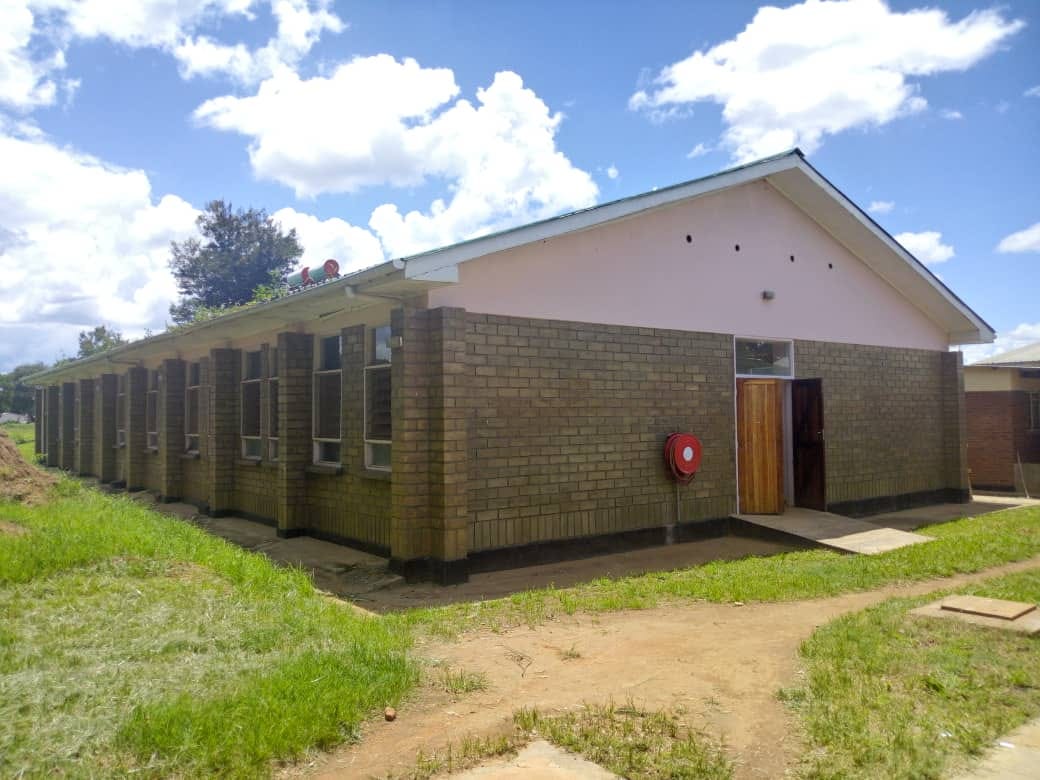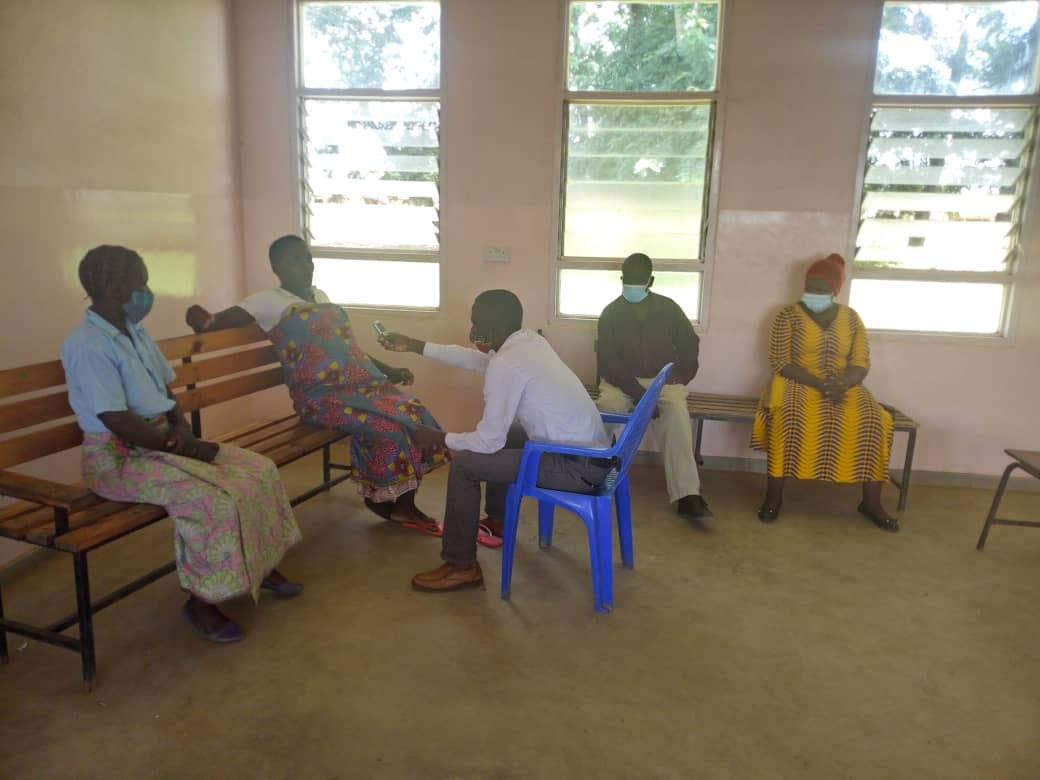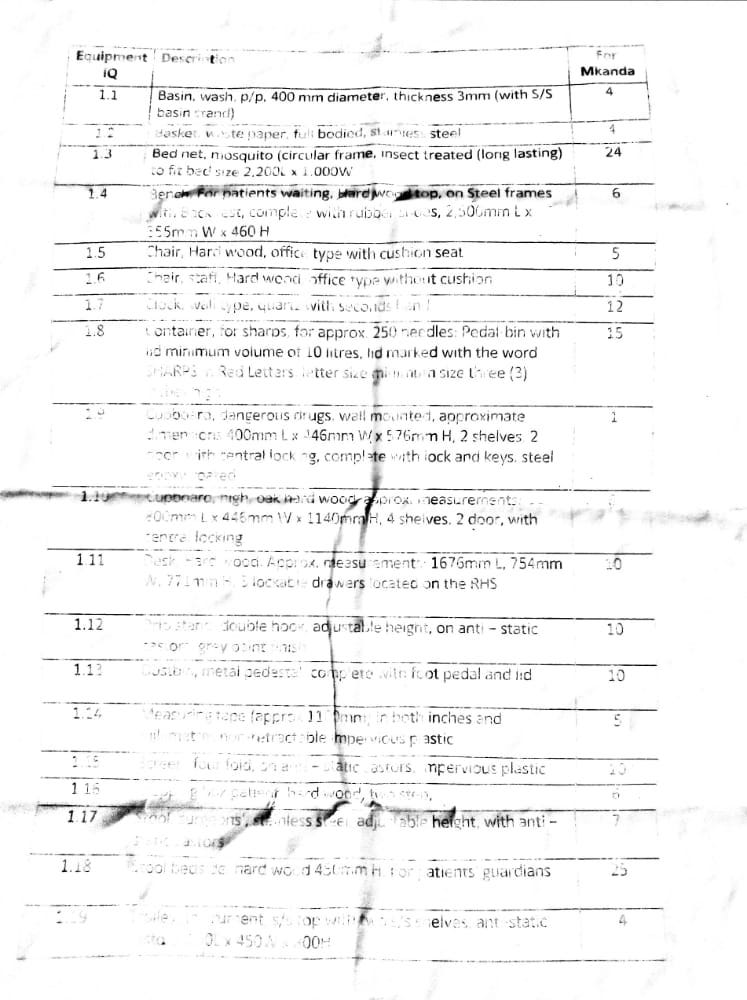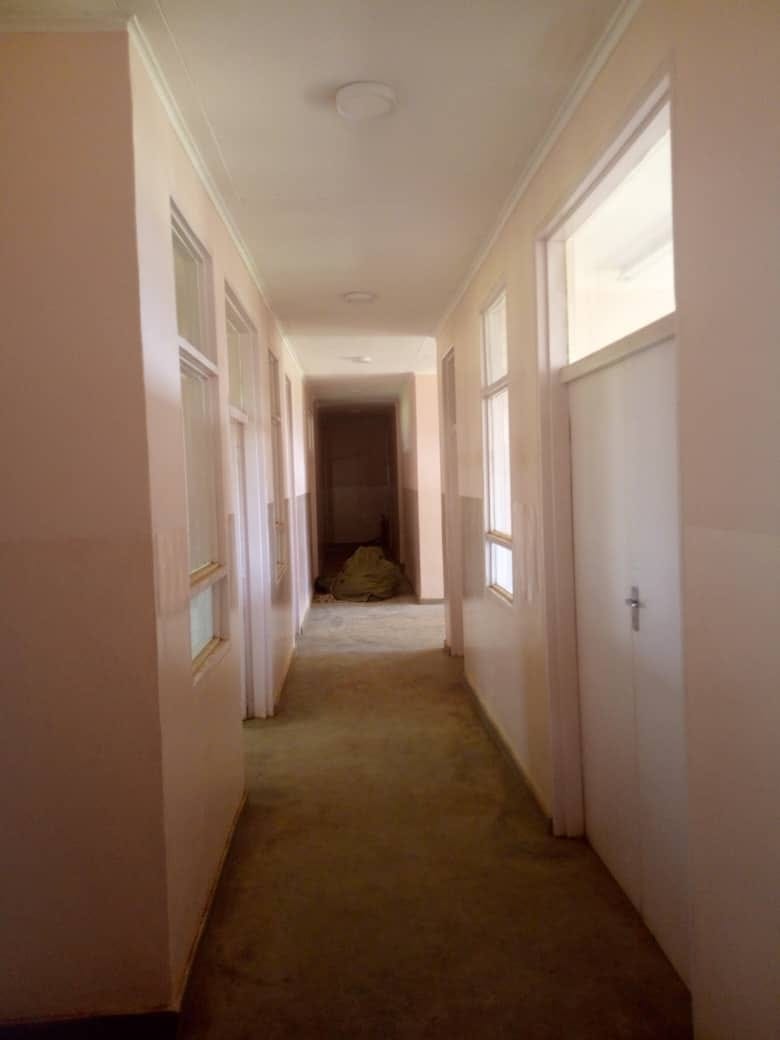It Never Rains But Pours for Mkanda Community: How a Delivery Note Ended Up Putting Lives of Pregnant Women on the Line
“I seriously call on authorities to act fast so that the new ward becomes operational to save both babies and their mothers,” Joyce Che Fulayi, Mkanda, Mchinji
Mkanda Health Centre, a facility that was built to cater for just a few thousand villagers in the early days of post-independence Malawi must now meet the needs of nearly 50, 000 people.
Every month, over 200 women from villages around give birth at the rural health facility, which has a scanty maternity ward.
“We still struggle to access quality maternity services at the health facility, despite the construction of a new maternity ward at the health centre by the Results-Based Financing for Maternal and Neonatal Health (RBF4MNH) Initiative,” Luciana Yamikani, a villager who has recently given birth at the place, laments.
“The newly-built maternity ward was meant to help women who deliver at the RBF funded facility and remain there during the critical period immediately after giving birth, but then, sadly, the ward is not functional due to the absence of furniture and medical equipment.”
For years now, pregnant women throughout the Mkanda area have been dealing with the hardship of traveling to the district hospital in case of complications and its effects.
But then the construction of the new maternity ward had given them a glimmer of hope, despite coping with all of those troubles without a spacious and well-equipped maternity ward.
They point the finger at the “authorities” for allegedly diverting furniture and equipment meant for the new facility to another health centre, but Mchinji District Health Office says they did nothing wrong, and the items in question will be sent back to Mkanda, as “they was communication breakdown due the absence of a delivery note”.
Recently, we visited the furniture and equipment-poor ward where, as Luciana says, we witnessed a sad scenario of pregnant women sharing beds, with others sleeping on the floor.
The scramble for space by pregnant women in maternity wards at Mkanda is clearly a microcosm of the nation’s multi-faceted health crisis.
“As one of the chairpeople of guardians here, I’m so disappointed with the current situation here, as women are being forced to be packed like sardines, despite the fact that we’ve got a new ward that is not being used due to bureaucratic problems,” Joyce Che Fulayi, says.
“I seriously call on authorities to act fast so that the ward becomes operational to save both babies and their mothers.”
Our investigations found that catering for more than 50, 000 people, and seeing close to 200 women delivering at the facility, Mkanda Health Centre in Mchinji district, central Malawi, was one of the health facilities that benefitted from the Results-Based Financing for Maternal and Neonatal Health (RBF4MNH) Initiative, which was implemented between January 2012 and May 2018. The governments of Germany and Norway financed the initiative.
Among other things, the RBF programme provided small cash payments to women who delivered in an RBF facility and remained there during the critical period immediately after giving birth.
“A total of 33 health facilities in four districts participated in the programme, including four district hospitals and five facilities of the Christian Health Association of Malawi (CHAM). And a former minister of health hailed the programme, ‘This is an important programme that could help Malawi achieve decentralized universal healthcare coverage and through the health services joint fund, we believe we can scale-up the programme nationwide to reduce maternal and neonatal morbidity and mortality,’” according to a case study by Reagan Kaluluma, Deputy Programme Director and Corinne Grainger, Technical Specialist.
And a recent study shows that the intervention districts (Mchinji, Dedza, Ntcheu, and Balaka) experienced a marginally significantly greater decline in maternal mortality over the course of the latter compared with the earlier intervention period.
For example, maternal mortality at observation start (ie, July 2012) was estimated at 111.4 deaths/100 000 facility-based deliveries for the control and 134.8 deaths/100 000 facility-based deliveries for the intervention districts.

Mkanda Health Centre, like the rest of the 33 health facilities in the four districts that participated in the programme, got the much-needed investments in infrastructure and equipment aimed at ensuring minimum operating standard in the provision of emergency obstetric care.
Through the programme, the rural health facility got a new and spacious maternity ward to enable more women in the area to deliver at the health facility, thereby improving the quality of maternal and neonatal care services for women around.
The new ward came as a huge relief to women who fail to access quality maternity services.
However, as fate would have it, since its completion in 2018, the ward has not yet been operationalized as it still lacks furniture and other essential equipment for use.
It is rumored that this equipment were purchased but eventually diverted to the wrong address.
Not amused with the development, Mkanda Reflection Action Circle is not leaving any stone, but trying to follow up the case with authorities at Mkanda Health Centre but got no tangible responses.
One of the facilitators of Mkanda RAC, Janet Phiri, says they see the fight to get back the “missing” furniture and equipment for Mkanda maternity ward as one way of improving accountability in service delivery at the health facility as well as other places in the community.
“No matter what it takes, we won’t relent until we get back the items so that we can see an improvement in service delivery at the health facility. Right now, can you imagine, women who have complications soon after delivering are referred to the district hospital, which is far away from here,” Phiri says as-a-matter-of-factly.
“We appeal authorities to ensure that the items are brought back as soon as possible because 2 years is a long time.”
Jonas Ndhlovu is another facilitator at Mkanda RAC, and says, “We will stand firm with all sorts of challenges until we get back the items meant for the ward…it’s our right.”
During our investigation, we learnt that when RBF officials and their counterparts from the Ministry of Health visited Mkanda Health Centre in 2020, they were dumbfounded to discover the items sent to the ward were not yet there. They promised to investigate the matter, but then never reported back as to what they had found out.
Meanwhile, Traditional Authority Mkanda has weighed in on the matter, saying the delay is undoubtedly putting the lives of pregnant women and newly-born babies in his area on the line.
"For a long time, we've been calling for the expansion of the current maternity ward because it's scanty and can't accommodate more patients. And when the new spacious maternity ward was built in 2018, thanks to RBF, we thought our miseries had ended. But what we're now seeing is disheartening, to say the least," the chief laments.
"I personally urge authorities to act swiftly on the matter, otherwise we'll keep on bogged down with the same problems."
Davie Mwale is Mchinji hospital administrator says the Mchinji District Health Office has heard about the news and will act accordingly.
“What we have discovered is the contractor who was also hired to deliver the furniture and equipment wrongly delivered the items at Chiosha Health Centre, another facility that also benefited from the RBF programme in the district. The problem arose because there was no delivery note for the items,” he says.
“But then later we realized that some of the items belonged to Mkanda Health Centre, particularly the new maternity ward. So, we’re planning to send the items there as soon as possible.”
Documents that we have seen show that about 200 items are supposed to be delivered at Mkanda maternity ward. These include beds, mattresses, and medical equipment.
But pressed to say when exactly his office expects to deliver the furniture and equipment to Mkanda, as the community is worried the delay will cost them more, Mwale was noncommittal.
“All I can say is that the items will be sent as soon as possible, but just to say we have also discovered that some of the items are not really supposed to be used at that ward. We have taken such items for use at the district hospital. These are items like those used in a theatre, which doesn’t exist at the maternity ward at Mkanda Health Centre.”
However, a stomach-churning fact we learnt from Mwale is that Mchinji DHO has actually taken some of the items meant for Mkanda maternity ward for use at the district hospital, while failing to send back the “ missing” items to Mkanda.
We put to him that the idea to take away some items that were meant for the maternity new ward could be wrong because RBF programme officials had supplied them to that particular facility, but Mwale insisted that they had authority over all supplies sent to health facilities in the district.
“I feel next time we just need to be consulted on what’s required in facilities well-wishers would like to support,” he says.
Reacting to the news, Executive Director of Malawi Health Equity Network, George Jobe, expressed surprise that a matter that appears straightforward should be dragging for ages.
“I have personally spoken to officials at Mchinji DHO appealing to them to make sure that they send the furniture and equipment to Mkanda Health Centre, particularly to the new maternity ward within one week,” Jobe says.
“Of course, they say all this is a result of a missing delivery note when the items were being delivered, which I think is not a big deal now that they have realized the anomaly. What they need to do now is to simply send the items as soon as possible so that pregnant women of Mkanda are assisted accordingly.”
On his part, health rights activist, Maziko Matemba, says Mchinji DHO has no choice but make sure it sends the furniture and medical equipment to Mkanda without any further delay.
“It’s really not just surprising, but equally sad, that communities around Mkanda, especially pregnant women, are being denied their right to health because of the delay in delivering the furniture and equipment. And my worry is that some of the items might get worn out or expire before they are even used by the rightful owners---people of Mkanda,” Matemba says.
“I, therefore, appeal to authorities at Mchinji DHO and other stakeholders to make sure that the furniture and equipment are delivered without any further delay to save lives of pregnant women and newly-born babies in that area.”
Action Aid Malawi’s Head of Programmes and Policy, Clement Ndiwo-Banda, says as an organization they see the intervention by members of Mkanda RAC as a progressive step because the community was able to monitor the problem and followed up with the necessary steps to ensure accountability of those involved in the delay to send back the furniture and equipment to the ward.
“In fact, what Mkanda RAC members are doing gives us more reason why we need to out this Partnership for Social Accountability (PSA) programme to other districts in the country with the view ensuring the strengthening of sexual and reproductive health public services delivery for people in Malawi,” Ndiwo-Banda says.
Ironically, this is not the first time communities around Mkanda Health Centre had problems with how officials were handling things at the RBF-funded facility.
While construction of the maternity ward was in progress in 2018, the community members reported suspicious activity by the then foreman of the construction company that was hired to build the ward of embezzling the resources to build his own house.
The villagers were mainly concerned for the integrity of the structure of the buildings that were supposed to be constructed. We interviewed a number of individuals who reported seeing the foreman moving materials and human resources from the clinic to his site.
Of course, the foreman and the company denied the accusations, however, stating that there was no misuse of resources and ensuring the community that the structure at the maternity ward was not going to be compromised.
While the debate on how and when the “missing” items will be returned to Mkanda Health Centre, the sentiments by Joyce Che Fulayi, one of the guardians at the maternity ward, keeps on emerging: “I seriously call on authorities to act fast so that the new ward becomes operational to save both babies and their mothers.”
Seriously, why should a delivery note cause delay in sending “missing” items back to the right health facility?
For the people of Mkanda, it never rains but pours.







